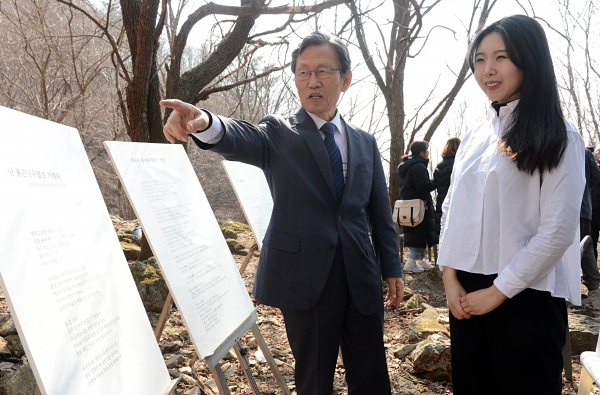Failure at life's crossroads often serves as a guide to greater success. Looking back on my youth, I recall two significant "rejections" that proved to be pivotal moments in shaping my life's direction.
The first occurred during my third year of middle school. Believed to have a talent for writing, I was selected as one of the top five students in our school's writing competition. This earned me a spot in the Gyeongsangbuk-do regional student writing contest. Being chosen from among over 500 students filled me with pride. However, on the day of the competition, I failed spectacularly. Having never received formal writing instruction, I simply "slipped" among the skilled competitors from other regions.
The second rejection came during my senior year of university. As an avid poetry enthusiast and writer, I submitted my work to Seoul National University's New Year's Literary Contest. Despite high hopes, I was once again rejected. This time, though, there was a silver lining. I learned that my piece, "Winter Song," had made it to the final five. In the judges' comments, poet Kim Nam-ju praised my work for having "good conscience." Although I didn't win, this experience greatly boosted my confidence.
In retrospect, these two rejections became crucial turning points in my life. Had I succeeded then, I might have pursued a career as a poet. But it seems God had different plans for me. These experiences solidified my resolve to study theology.
Of course, I didn't abandon poetry entirely. I've published several collections over the years. However, at the core of my identity has always been my calling as a pastor and theology professor. Walking this path, rather than that of a poet, has been immensely fulfilling for me.
There's no need to fear failure. Sometimes, it may be God's hand leading you to a greater mission. As in my experience, life's rejections are never the end. Rather, they can mark new beginnings. I realized that true success lies in discovering one's talents and using them according to God's will.
These experiences significantly shaped my life philosophy. I learned the importance of facing challenges without fear of failure and discovering one's true calling in the process. This also influenced my educational philosophy, leading me to always emphasize to my students the importance of taking on challenges and the value of growth through failure.
Ultimately, these two "rejections" became crucial turning points in my life. They weren't mere failures, but precious experiences that helped me find my true path. Through them, I was able to walk the path of a pastor and educator with a greater sense of purpose, finding much fulfillment and joy along the way. These experiences have profoundly influenced every aspect of my life, making me a more mature and wise individual.
The first occurred during my third year of middle school. Believed to have a talent for writing, I was selected as one of the top five students in our school's writing competition. This earned me a spot in the Gyeongsangbuk-do regional student writing contest. Being chosen from among over 500 students filled me with pride. However, on the day of the competition, I failed spectacularly. Having never received formal writing instruction, I simply "slipped" among the skilled competitors from other regions.
The second rejection came during my senior year of university. As an avid poetry enthusiast and writer, I submitted my work to Seoul National University's New Year's Literary Contest. Despite high hopes, I was once again rejected. This time, though, there was a silver lining. I learned that my piece, "Winter Song," had made it to the final five. In the judges' comments, poet Kim Nam-ju praised my work for having "good conscience." Although I didn't win, this experience greatly boosted my confidence.
In retrospect, these two rejections became crucial turning points in my life. Had I succeeded then, I might have pursued a career as a poet. But it seems God had different plans for me. These experiences solidified my resolve to study theology.
Of course, I didn't abandon poetry entirely. I've published several collections over the years. However, at the core of my identity has always been my calling as a pastor and theology professor. Walking this path, rather than that of a poet, has been immensely fulfilling for me.
There's no need to fear failure. Sometimes, it may be God's hand leading you to a greater mission. As in my experience, life's rejections are never the end. Rather, they can mark new beginnings. I realized that true success lies in discovering one's talents and using them according to God's will.
These experiences significantly shaped my life philosophy. I learned the importance of facing challenges without fear of failure and discovering one's true calling in the process. This also influenced my educational philosophy, leading me to always emphasize to my students the importance of taking on challenges and the value of growth through failure.
Ultimately, these two "rejections" became crucial turning points in my life. They weren't mere failures, but precious experiences that helped me find my true path. Through them, I was able to walk the path of a pastor and educator with a greater sense of purpose, finding much fulfillment and joy along the way. These experiences have profoundly influenced every aspect of my life, making me a more mature and wise individual.

